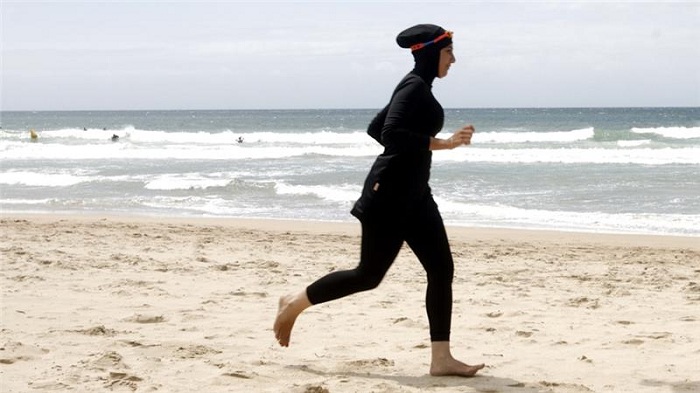French judge upholds burkini ban in Corsica

France`s highest administrative court last month suspended bans brought in by about 30 towns, ruling that the measure was permitted only if wearing the Islamic full-body swimsuit was likely to cause a public disturbance.
Nice, Cannes and several other towns on France`s Mediterranean coast have lifted bans following the Council of State`s ruling.
But the mayor of the Corsican village of Sisco brought in his ban after a confrontation between Moroccans and local residents in mid-August, which reportedly happened when someone took a photograph of a woman swimming in the sea wearing a veil.
More than 100 police officers had to intervene to break up the fight.
`Strong emotions`
The burkini debate comes after a number of deadly attacks in France claimed by the Islamic State of Iraq and the Levant (ISIL) group.
The court in Corsica ruled on Tuesday that the ban should be maintained because "strong emotions persist".
"The presence on a beach in Sisco of a woman wearing a swimming costume of the type targeted [by the ban] ... could cause risks to public order which it is the town hall`s duty to prevent," the court in Bastia said, dismissing a challenge from the Human Rights League.
Sisco`s Mayor Ange-Pierre Vivoni said the ruling was "a relief for me and local people".
He has told AFP news agency that he brought in the ban because he "risked having deaths on my hands".
The tensions between the local community and Muslims in Corsica were demonstrated on Monday when two Muslim mothers wearing headscarves were accosted and prevented from entering a nursery school by two other parents.
The burkini bans have caused outrage abroad, but opinion polls in France show they have the support of a majority of the public.
In France, which counts a population of five million Muslims, burkinis are extremely rare and only a minority of Muslim women remain covered on beaches.
`Unacceptable image`
In a related development on Monday, Manuel Valls, French prime minister, criticised a New York Times article in which French Muslim women complained of discrimination and even "persecution".
The US daily solicited the views of European Muslim women on the burkini debate, distilling more than 1,000 comments for the article.
The article, which appeared on Friday, painted an "unacceptable image of France because it is false", Valls wrote in the French-language online edition of the Huffington Post.
He said France was "proud that Islam is the country`s second religion. Millions of citizens of the Muslim faith or culture respect their duties perfectly and fully enjoy their duties".
One respondent told the New York Times she was "afraid of having to wear a yellow crescent on my clothes one day, like the Star of David for Jews not so long ago".
Another said: "French Muslim women would be justified to request asylum in the United States ... given how many persecutions we are subjected to."
However, Valls saw an "incredible reversal" in comments that he said presented the burkini as "an instrument of women`s liberation", citing one respondent who said her sister "could finally play with her children on the beach instead of sitting in the shadow".















































